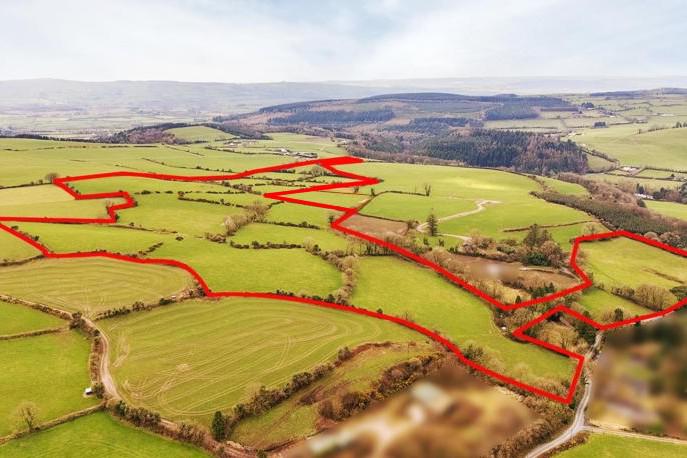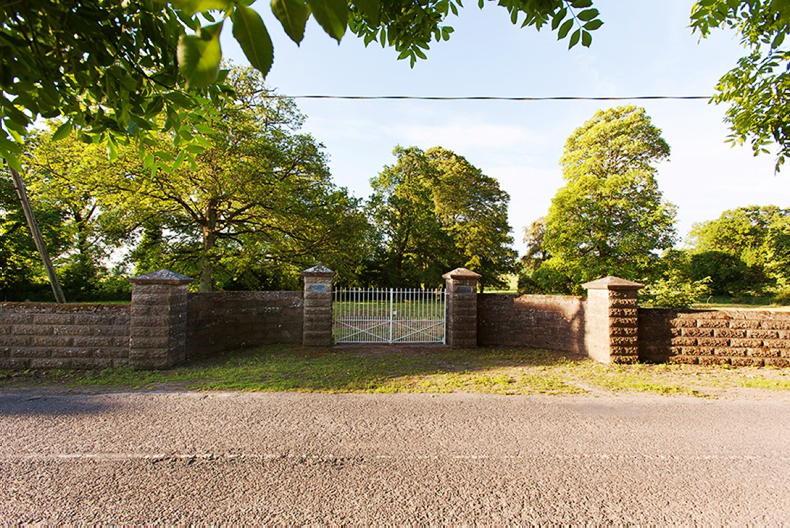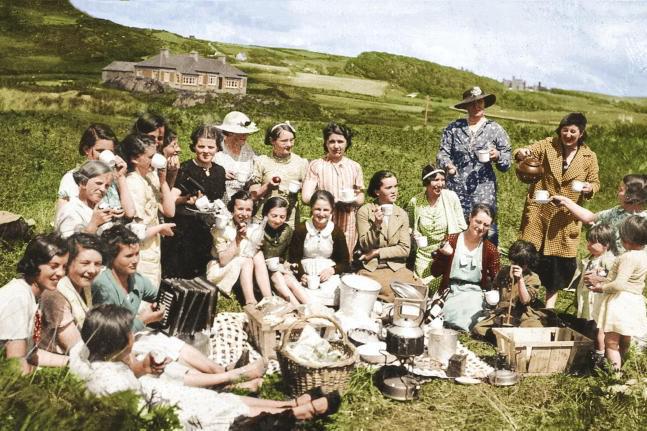We take a lot for granted in our modern democratic society. Sure, we still need to work on things (arguably a lot of things), but at least we probably won’t get killed with a lance on election day.
“Why would anyone ever worry about being killed with a lance on election day?” you might be asking.
Because it has happened in the past, reader – right here in Ireland.
Now, back in the 1800s when this occurred, violence on an election day was not a surprise. Due to the fact that regular citizens were not granted a vote (these were reserved for land owners), they would take to the streets to have their voices heard, which would often result in some form of violence.

Dr Aoife Bhreatnach is an Irish historian, based in Cork, who specialises in garrison towns
A sore election
Dr Aoife Bhreatnach is an Irish historian, based in Cork, who specialises in garrison towns (Irish towns that had a barracks for soldiers). She is fascinated by historical events like this one – indeed, she shares this story, titled A sore election: the 12th Lancers in Dungarvan, 1866 on her website, irishgarrisontowns.com.
As she tells it, on this particular day (28 December, 1866), the 12th Lancers of Dungarvan – who were charged with policing the election proceedings – led an unauthorised cavalry charge into the crowd; killing two men.
“The Dungarvan incident is just one of those moments of conflict between soldiers and civilians,” she says. “Dungarvan has a small barracks, but during this election season they get in huge reinforcements because it is a polling town. So soldiers are brought in from Carrick-on-Shannon and Fermoy to help police the election.
“At this time, of course, it isn’t ‘one man, one vote’,” she continues. “It’s a small minority of voters, who aren’t the most popular people anyway – they’re likely landlords or significant tenant farmers.”
Because the constituency in Dungarvan is so large, the voters had to be brought into the town. In these times, votes weren’t kept a secret, so the voters from each party would be brought to a party safe house or headquarters before being brought to the polling station.
It was quite dull work for soldiers; they thought policing was very much beneath them
“You go to the house where you’re going to cast your vote,” Aoife says. “[At this time] in Dungarvan, they’re going to an official’s house – he is going to host the conservative voters.
“The Lancers are escorting the voters in from the countryside,” she continues. “It was quite dull work for soldiers; they thought policing was very much beneath them. And it’s stressful! People throw a lot of stones in the late 19th century. It’s how poor people participate in politics.”
Violence erupts
The violence took place as the Lancers were bringing the voters into Dungarvan. They’d had a long day, were probably tired and hungry and had already been pummelled with stones once by civilian onlookers.
“Insults are thrown and they’re very personal – it’s not just ‘go away out of it!’, it’s, ‘go on you dirty orange bastard!’” Aoife remarks. “And I’m sure a lot of the other insults weren’t printed, because they were unprintable!”
As a result, the Lancers charged into the crowd. One man, William O’Brien, was trampled to death, while the other – Captain Bartholomew Kiely, who was in fact hosting the conservative voters that day – is killed with a lance to the chest.
There’s loads of little incidents like this in Britain and Ireland where things get out of hand
“He’s the very man they were about to deliver the voters to!” Aoife exclaims. “They lost their tempers, and this happens a lot with military policing – they just aren’t very good at it. They are trained to, ultimately, resort to violence, so it’s never really a surprise when they get carried away.
“There’s loads of little incidents like this in Britain and Ireland where things get out of hand.”
During the inquest, the identities of the cavalrymen responsible were protected by their superior, Major Wombwell. No one was charged, and in the end, the town raised funds for the family members of one of the deceased.
“They’re trying to raise money for [William O’Brien], because he’s an ordinary bloke,” Aoife explains. “There’s no social welfare and they want to help pay for his funeral and maybe give a small lump sum to his widow and child. They actually write to the officers of the garrison and ask them for a donation!”
Read more
Tales from the Parish: Lady Tully’s strife
Tales from the Parish: St Dahalin, early Irish saint and miracle worker
We take a lot for granted in our modern democratic society. Sure, we still need to work on things (arguably a lot of things), but at least we probably won’t get killed with a lance on election day.
“Why would anyone ever worry about being killed with a lance on election day?” you might be asking.
Because it has happened in the past, reader – right here in Ireland.
Now, back in the 1800s when this occurred, violence on an election day was not a surprise. Due to the fact that regular citizens were not granted a vote (these were reserved for land owners), they would take to the streets to have their voices heard, which would often result in some form of violence.

Dr Aoife Bhreatnach is an Irish historian, based in Cork, who specialises in garrison towns
A sore election
Dr Aoife Bhreatnach is an Irish historian, based in Cork, who specialises in garrison towns (Irish towns that had a barracks for soldiers). She is fascinated by historical events like this one – indeed, she shares this story, titled A sore election: the 12th Lancers in Dungarvan, 1866 on her website, irishgarrisontowns.com.
As she tells it, on this particular day (28 December, 1866), the 12th Lancers of Dungarvan – who were charged with policing the election proceedings – led an unauthorised cavalry charge into the crowd; killing two men.
“The Dungarvan incident is just one of those moments of conflict between soldiers and civilians,” she says. “Dungarvan has a small barracks, but during this election season they get in huge reinforcements because it is a polling town. So soldiers are brought in from Carrick-on-Shannon and Fermoy to help police the election.
“At this time, of course, it isn’t ‘one man, one vote’,” she continues. “It’s a small minority of voters, who aren’t the most popular people anyway – they’re likely landlords or significant tenant farmers.”
Because the constituency in Dungarvan is so large, the voters had to be brought into the town. In these times, votes weren’t kept a secret, so the voters from each party would be brought to a party safe house or headquarters before being brought to the polling station.
It was quite dull work for soldiers; they thought policing was very much beneath them
“You go to the house where you’re going to cast your vote,” Aoife says. “[At this time] in Dungarvan, they’re going to an official’s house – he is going to host the conservative voters.
“The Lancers are escorting the voters in from the countryside,” she continues. “It was quite dull work for soldiers; they thought policing was very much beneath them. And it’s stressful! People throw a lot of stones in the late 19th century. It’s how poor people participate in politics.”
Violence erupts
The violence took place as the Lancers were bringing the voters into Dungarvan. They’d had a long day, were probably tired and hungry and had already been pummelled with stones once by civilian onlookers.
“Insults are thrown and they’re very personal – it’s not just ‘go away out of it!’, it’s, ‘go on you dirty orange bastard!’” Aoife remarks. “And I’m sure a lot of the other insults weren’t printed, because they were unprintable!”
As a result, the Lancers charged into the crowd. One man, William O’Brien, was trampled to death, while the other – Captain Bartholomew Kiely, who was in fact hosting the conservative voters that day – is killed with a lance to the chest.
There’s loads of little incidents like this in Britain and Ireland where things get out of hand
“He’s the very man they were about to deliver the voters to!” Aoife exclaims. “They lost their tempers, and this happens a lot with military policing – they just aren’t very good at it. They are trained to, ultimately, resort to violence, so it’s never really a surprise when they get carried away.
“There’s loads of little incidents like this in Britain and Ireland where things get out of hand.”
During the inquest, the identities of the cavalrymen responsible were protected by their superior, Major Wombwell. No one was charged, and in the end, the town raised funds for the family members of one of the deceased.
“They’re trying to raise money for [William O’Brien], because he’s an ordinary bloke,” Aoife explains. “There’s no social welfare and they want to help pay for his funeral and maybe give a small lump sum to his widow and child. They actually write to the officers of the garrison and ask them for a donation!”
Read more
Tales from the Parish: Lady Tully’s strife
Tales from the Parish: St Dahalin, early Irish saint and miracle worker










SHARING OPTIONS